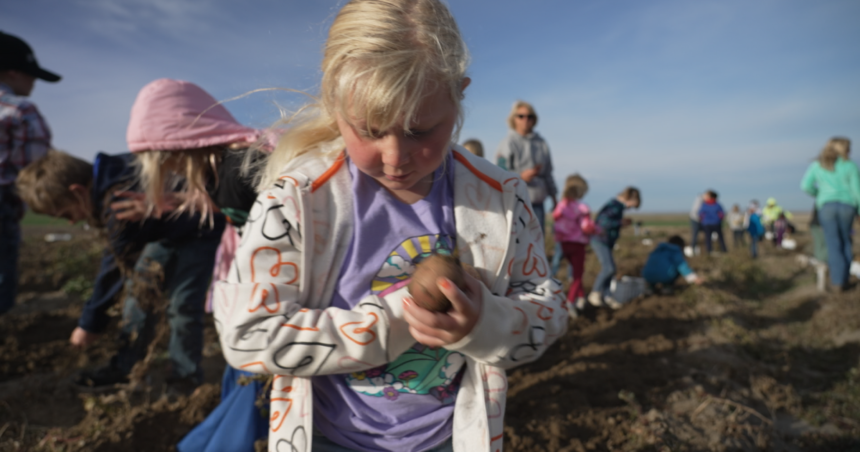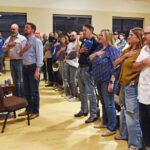NEAR BIG SANDY — Big Sandy farmer Bob Quinn officially opened the Quinn Institute earlier this year.
Through regenerative, organic agriculture, they’re hoping to spread the message that food is medicine.
Some Big Sandy elementary school students are using a down-to-earth method to get that point across at an early age.
With a pair of Percherons named Jake and Jill from Greycliff, Montana leading the way, Big Sandy kindergarten through sixth-grade students recently got down and dirty.
“I think it’s essential for everybody to really understand and appreciate where their food comes from,” said Quinn.
The students learn about reconnecting with food, not only when it ends up on the plate, but where it starts in the field.
“We figured the best way to do that would be to have the kids come out and see the potatoes actually being dug and then get their hands in the dirt and actually pick them up and put them in crates for us,” said Quinn. “Many of these potatoes end up on their plates as they go into the school to be used in the school lunch program.”
“Bob has provided us the opportunity not only to learn where it comes from, but the work that goes into it, and also just the importance of harvesting your own food,” said Big Sandy 5th-grade teacher Connie Reichelt.
Potatoes weren’t the only produce contributing to the outdoor classroom.
For more than half a century, Big Timber’s Dave Christensen has been developing native corn lines, the same corn Mandan Indians grew in North Dakota.
For the past 20 years, he’s used Quinn’s land to grow Painted Mountain corn, known for its colorful variety and healthful benefits.
“The protein is 13 percent, whereas most commercial grain is eight or nine percent protein,” said Christensen. “The beautiful colors are powerful antioxidants for healing. It’s actually a superfood, especially the really dark colors.”
Harvesting corn and picking potatoes served as an opportunity to learn about the importance of agriculture.
“To have the kids have a chance to get out in the dirt and really be a participant in gathering their food and harvesting their food was a great experience,” said Quinn.





